More Top 10 lists from Shelf
Awareness folk... (see here for more).
Top Ten Books of 2010: Harvey
Freedenberg, reviewer
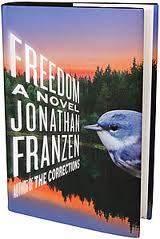 Freedom by Jonathan Franzen (Farrar, Straus & Giroux). While it's risky
to predict how the winds of literary fashion may blow someday, Franzen's novel
has all the earmarks of a work of enduring merit and significance. Its deep,
compelling portrayal of our uneasy times is matched by the acuity of Franzen's
insight into the souls of his troubled creations.
Freedom by Jonathan Franzen (Farrar, Straus & Giroux). While it's risky
to predict how the winds of literary fashion may blow someday, Franzen's novel
has all the earmarks of a work of enduring merit and significance. Its deep,
compelling portrayal of our uneasy times is matched by the acuity of Franzen's
insight into the souls of his troubled creations.
The Imperfectionists by Tom Rachman (The Dial Press). International
journalist Rachman supplies a satiric look at the newspaper business and much
more in his sly novel in stories about the travails of the staff struggling to
keep a small English-language paper afloat in Rome while wrestling with their
messy personal lives.
Memory Wall by Anthony Doerr (Scribner). Traversing settings from South Africa to
Wyoming to Lithuania to suburban Cleveland, and in time from the Holocaust to a
near-term dystopian future, in this outstanding short story collection Doerr
probes the subject of memory in evocative prose that only enhances the richness
of these consistently moving tales.
Super Sad True Love Story by Gary Shteyngart (Random House). It remains to be seen whether through
some combination of self-indulgence, profligacy and inattention America will
slide into the chaos Shteyngart channels in this brilliant satire. We have
something to say about that, he seems to be telling us. And we might do well to
take heed before it's too late.
Matterhorn by Karl Marlantes (Atlantic Monthly
Press, in association with El León Literary Arts). As ancient as The Iliad and as contemporary as the
latest dispatch from Afghanistan, stories of war will continue to absorb and
repel us. Marlantes's novel is a worthy addition to that body of literature,
rising above the particularities of the conflict it describes to achieve a firm
handhold on universal truth.
The Immortal Life of Henrietta Lacks by Rebecca Skloot (Crown Publishers). In her first book, science journalist Skloot
uncovers the incredible story of Henrietta Lacks and the remarkable HeLa cells
that have spurred countless scientific advances, from polio vaccine to in vitro fertilization. While it's
hardly recompense for half a century of anguish, the Lacks family has attracted
a worthy chronicler of their amazing, often disturbing tale.
War by Sebastian Junger (Twelve). Junger offers an intense
account of his time embedded with the men of the Second Platoon of Battle
Company in Afghanistan. For those who haven't experienced combat and never will,
there's little to do but marvel at the courage of the men he describes and the
unflinching glimpse he offers us into their lives.
Making Toast by Roger Rosenblatt (Ecco). There
was a time when a brief account of the three generations of a close-knit family
living under the same roof and struggling to make sense of the sudden death of
a young wife and mother wouldn't have been all that extraordinary. That it
takes place within the last two years in an affluent household in Bethesda,
Md., transforms Rosenblatt's plainspoken, heartfelt story into something
remarkable.
Half a Life by Darin Strauss (McSweeney's
Books). Imagine yourself a few weeks
from your high school graduation, cruising down the road with a carload of your
friends. Now imagine the almost inconceivable: a fellow student riding her
bicycle swerves into the path of your car and is killed instantly. Novelist
Strauss was the driver of that car in May 1988 and this memoir is the intense, searching account of
the path he traveled from that grim day to the present.
Essays from the Nick of Time by Mark Slouka (Graywolf Press). Slouka, who teaches at the University of
Chicago, offers a dozen challenging meditations (several of which have been
selected previously for inclusion in the Best
American Essays series) located at what he calls "the intersection of
memory and history and fiction."
---
Top Ten Books of 2010: Robert Gray,
contributing editor
My list this year seems to have naturally lined up in pairs:
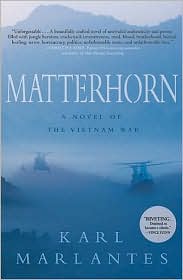 Fiction
Fiction
Matterhorn by Karl Marlantes (Atlantic Monthly Press). Like my Shelf colleague Marilyn Dahl, I had some reservations about reading another Vietnam novel. But this precisely detailed, evocative portrayal of hard-won survival and humanity in a combat zone turned out to be my favorite read of the year.
Up from the Blue by Susan Henderson (Harper Paperbacks). As I read this brilliant debut novel, I kept thinking that if I was still working on a bookstore sales floor, I could handsell a bunch (bookseller shorthand for dozens, maybe hundreds) of copies. "You have got to read this," I would say, like an incantation.
Travel
Travels in Siberia by Ian Frazier (FSG). As always, Frazier crafts a work of nonfiction that opens my eyes to a subject and a people I thought I knew something about. And how can anyone resist a book with observational gems like the fact that Lake Baikal "contains about 20% of the world's freshwater"?
Jeff in Venice, Death in Varanasi by Geoff Dyer (Vintage). Yes, it's technically a novel, but you also have to take into account the fact that Geoff Dyer is, well, Geoff Dyer, and the usual rules about any genre simply do not apply to him. There is magic in this tale and I was utterly spellbound.
Memoir-ish
Autobiography of Mark Twain, Vol. 1 (University of California Press). As many critics have pointed out, this isn't really a memoir. It's a collection of memories. Reading Twain's sharp-tongued reflections and sometimes rambling--but always illuminating--recollections is like listening to the greatest dinner conversation/monologue ever.
Hitch-22 by Christopher Hitchens (Twelve). This book is also not, strictly speaking, a memoir, but it does offer intriguing biographical details--later made more compelling with the revelation of his illness--mixed generously with fierce and brilliant opinions. Whether I agree or disagree with Hitchens on a particular subject, I still love to watch his mind at work and at play.
My Obsession with Silence
A Book of Silence by Sara Maitland (Counterpoint). This year I became intrigued with the concept of silence and its increasingly rare presence in our cacophonous world. Maitland writes a fiercely beautiful account of her attempt to pursue silence as a way of life, with all the complexities inherent in such an impossible, yet sometimes approachable, quest.
In Pursuit of Silence: Listening for Meaning in a World of Noise by George Prochnik (Doubleday). In contrast to Maitland's work, Prochnik explores a full range of sound and silence in human existence, noting, among many insightful observations, that we are are the only species--predator or prey--that seems compelled to consciously make so much noise as we move through the world.
Bookseller Recs
Comeback Love by Peter Golden (Staff Picks Press). I've written about the publication of Golden's novel in my column (Shelf Awareness, November 5, 2010). This book makes my list this year not only because it is a quality read that would be an easy handsell, but also because of its notable genesis as an indie bookseller-published work with national sales potential.
Merit Badges by Kevin Fenton (New Issues/Western Michigan University). At the MBA trade show in St Paul, Minn., this year, Martin Schmutterer of Common Good Books convinced me to read this novel and introduced me to the author. Thanks, Martin. Fenton's story is a beautifully crafted, perceptive and often funny evocation of some extraordinary, ordinary people.
---
Top Ten Books
of 2010: John McFarland, reviewer
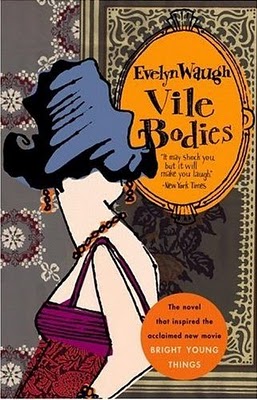 Vile Bodies by Evelyn Waugh (1930; reprinted by
Back Bay Books). A romp through a fantastical 1920s London filled with
strivers, dimwits and vampy flappers that is guaranteed to make a dreary day
seem sunny and change your mood from dull to effervescent.
Vile Bodies by Evelyn Waugh (1930; reprinted by
Back Bay Books). A romp through a fantastical 1920s London filled with
strivers, dimwits and vampy flappers that is guaranteed to make a dreary day
seem sunny and change your mood from dull to effervescent.
The Judgment of Paris: The
Revolutionary Decade that Gave the World Impressionism by Ross King (Walker). The Paris art
world went from celebrating large historical canvases in shades of brown and
gray to those featuring riots of color in the decade that King covers so well.
Sample factoid: Manet couldn't give away his paintings (any one of which will
now cost you in excess of $45 million).
Loitering with Intent by Muriel Spark (New Directions). A
fraudulent academy purporting to help aspiring authors write their
autobiographies provides the setting for Muriel Spark to skewer snobbery and
stupidity in her most delicious, inimitable and eccentric manner.
A Gift for Admiration: Further
Memoirs by James
Lord (Farrar, Straus & Giroux). If you were friends with James Lord, you
might not have realized he was keeping a very precise and, as it turns out,
withering record of his encounters with you. Here, he delivers the goods on
Peggy Guggenheim, Sonia Orwell and Isabel Rawsthorne, among other fascinating
characters.
The Golden Mean: A Novel of
Aristotle and Alexander the Great
by Annabel Lyon (Knopf). A richly imagined and engrossing novel of fourth-century
B.C. Macedon and Greece in which Aristotle tells all, including entrancing
tales of his most famous student.
Claude Levi-Strauss: The Poet in the
Laboratory by
Patrick Wilcken (Penguin). A rich and satisfying intellectual biography of one
of the foremost thinkers of the 20th century, of special interest to
anthropologists and readers who thrilled to the discovery of Tristes
Tropiques.
Prayer for My Enemy by Craig Lucas (Theater
Communications Group, 2009). A work of theatrical genius--rich in character,
emotion, regret, possibility and tragedy--that covers the war in Iraq,
addiction, forbidden love and the eternal battle between the Yankees and the
Red Sox.
Old Goriot by Honore de Balzac, translated by
Marion Ayton Crawford (Penguin Classics). A ramshackle Parisian boarding house,
packed with some on the rise, others on the decline, is the scene of human
comedy at which Balzac excels.
The Summer People by Maxim Gorky, translated by Nicholas
Saunders and Frank Dwyer (Smith and Kraus, 1995). A delightful play by Maxim
Gorky in a Chekhovian mood yet wielding satire like a surgeon's scalpel at the
expense of the Russian bourgeoisie.
A Dead Man in Deptford by Anthony Burgess (Da Capo Press).
A brilliant novel about the tempestuous life of Christopher Marlowe, playwright
and spy, by a master of the English language who is also a supreme entertainer.
---
Top Ten of 2010: Ron Hogan, reviewer
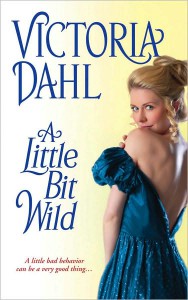 A Little Bit Wild by Victoria Dahl (Zebra). Hands down the best
historical romance I read this year. A precocious young heroine whose
blossoming appetites have already gotten her into trouble, and the rough but
sincere bastard son of a duke who volunteers to pretend to be engaged to her,
served up with a delightfully saucy sense of humor.
A Little Bit Wild by Victoria Dahl (Zebra). Hands down the best
historical romance I read this year. A precocious young heroine whose
blossoming appetites have already gotten her into trouble, and the rough but
sincere bastard son of a duke who volunteers to pretend to be engaged to her,
served up with a delightfully saucy sense of humor.
For the Win
by Cory Doctorow (Tor). Doctorow's second YA book is one of the year's most politically
engaging novels at any level. A truly global perspective on the impact of the
new economies created through the Internet, and a gripping story about labor
activists struggling to organize tomorrow's outsourced workforces.
Lord of Misrule by Jaimy Gordon (McPherson & Co.). If there was
ever an appropriate time to say the dark horse took the National Book Award,
this would be it. But Gordon's story about the not-so-glamorous side of horse
racing has the potential to become an enduring noir classic.
A Friend of the Family by Lauren Grodstein (Algonquin). Pete
Dizinoff really didn't think the woman his son was getting involved with was
suitable, so he decided to do something about it. Grodstein's masterful prose
renders Pete's voice as he looks back on events, after everything has gone to
hell.
The Instructions by Adam Levin (McSweeney's). In this surreal, rambling
debut, a 10-year-old with counterinsurgency training leads his most troubled
classmates in a violent uprising. Oh, did I mention the boy might also be the
messiah? Yes, it's over 1,000 pages long; yes, it's worth it.
The Thousand Autumns of Jacob de Zoet by David Mitchell (Random House). Even
when David Mitchell decides to do a straightforward historical novel, it's
still as relentlessly inventive as all his other fiction. A young Dutch
merchant-in-training arrives in Nagasaki in 1799 and finds much more corruption
than he'd bargained on, but that's just the surface of the emotionally complex
world Mitchell creates.
Skippy Dies
by Paul Murray (Faber & Faber). I've been recommending this novel to anyone
and everyone since I read it at the end of the summer. It made me laugh, then
it made me cry, then it made me laugh all over again. It's simply brilliant.
So Much for That by Lionel Shriver (Harper). A domestic drama of
overwhelming resonance, as a Brooklyn contractor's life savings are depleted by
his wife's mesothelioma (not to mention his aging father's increasing need for
care). But Shriver doesn't indulge in a lot of sweeping literary passages about
what it all means; she just keeps pushing the story as hard as it will go.
The Tiger
by John Vaillant (Knopf). It's the one nonfiction title on my list, but it's a
doozy. A little over a decade ago, a tiger stalked the forests around a remote
Siberian settlement, killing any human that got in its way. Vaillant's
absorbing meditation on man's relationship to nature and the wild never loses
sight of the dramatic story of this beast's rampage and the hunt to bring him
down.
I Hotel
by Karen Tei Yamashita (Coffee House Press). There is no one Asian-American
story. But Yamashita's set of interlocking novellas goes a long way towards
depicting the turbulent development of
Asian-American identity through San Francisco's political and cultural
underground between 1968 and 1977. An amazing, kaleidoscopic 600-page epic that
deserves to be absorbed in one marathon sitting.
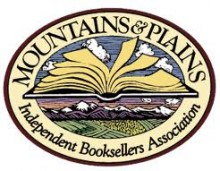 Laura Ayrey has been named executive director of the Mountains & Plains Independent Booksellers Association, effective December 20. She succeeds Lisa Knudsen, who is working with Ayrey to facilitate the transition by early January.
Laura Ayrey has been named executive director of the Mountains & Plains Independent Booksellers Association, effective December 20. She succeeds Lisa Knudsen, who is working with Ayrey to facilitate the transition by early January.








 BookExpo America will remain in New York City for the foreseeable future, according to BEA show director Steve Rosato, who wrote on the
BookExpo America will remain in New York City for the foreseeable future, according to BEA show director Steve Rosato, who wrote on the 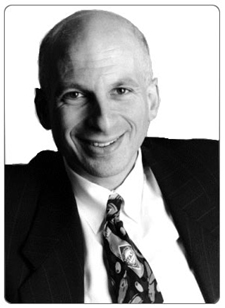 Early next year, bestselling author and entrepreneur Seth Godin will launch the
Early next year, bestselling author and entrepreneur Seth Godin will launch the 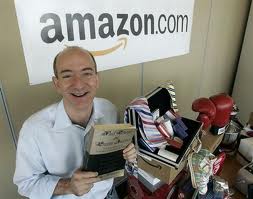 Jeff Bezos was profiled by
Jeff Bezos was profiled by  Amazon plans to build a distribution center in Cayce, S.C., that will have 1,250 full-time employees,
Amazon plans to build a distribution center in Cayce, S.C., that will have 1,250 full-time employees, 
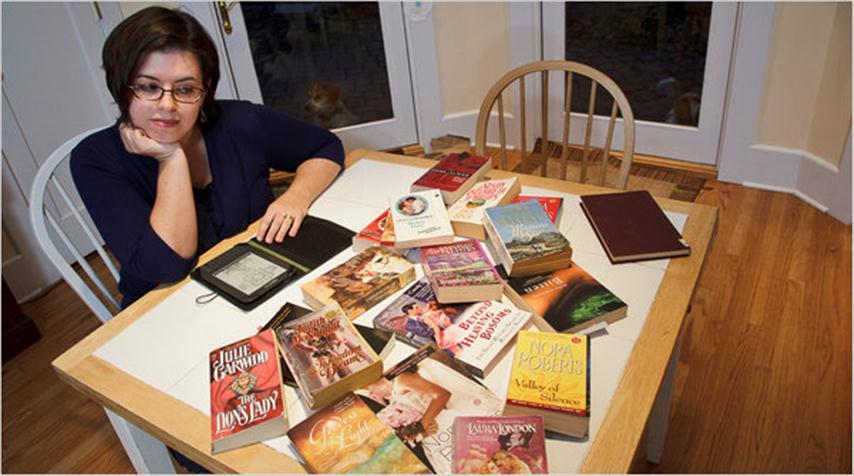 "If the e-reader is the digital equivalent of the brown-paper wrapper, the romance reader is a little like the Asian carp: insatiable and unstoppable. Together, it turns out, they are a perfect couple," the
"If the e-reader is the digital equivalent of the brown-paper wrapper, the romance reader is a little like the Asian carp: insatiable and unstoppable. Together, it turns out, they are a perfect couple," the 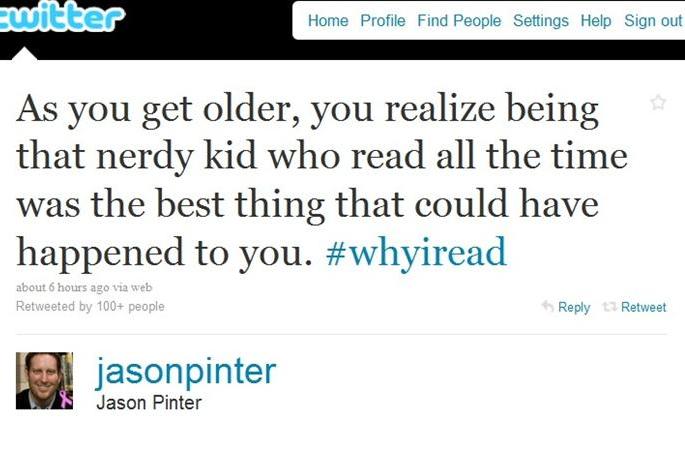 Yesterday morning,
Jason Ashlock, founder of Movable Type Literary Group, invited readers
of his
Yesterday morning,
Jason Ashlock, founder of Movable Type Literary Group, invited readers
of his 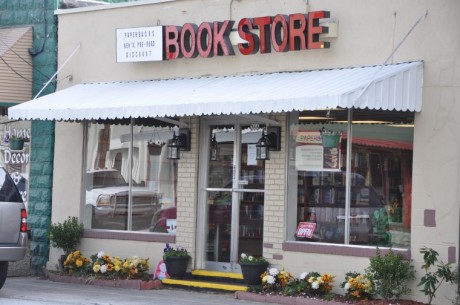 On Black Friday, the aptly named Book Store opened in downtown Loganville, Ga., the
On Black Friday, the aptly named Book Store opened in downtown Loganville, Ga., the 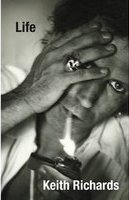 The generation gap: books and music category. From
The generation gap: books and music category. From 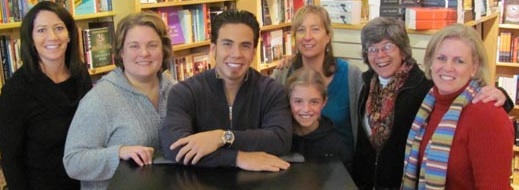
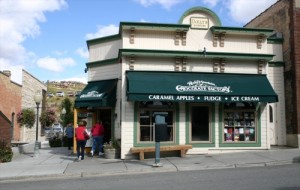 This year for holiday gifting Fassett
stocked up on coffee-table books, something customers aren't as likely to
be reading on electronic devices. One of her favorites is Horse by photographer and equestrian Kelly Klein. Books
with a regional slant are also popular selections, such as Canyon
Wilderness of the Southwest by Jon Ortner
and The Art of Maynard Dixon by
Donald J. Hagerty.
This year for holiday gifting Fassett
stocked up on coffee-table books, something customers aren't as likely to
be reading on electronic devices. One of her favorites is Horse by photographer and equestrian Kelly Klein. Books
with a regional slant are also popular selections, such as Canyon
Wilderness of the Southwest by Jon Ortner
and The Art of Maynard Dixon by
Donald J. Hagerty.
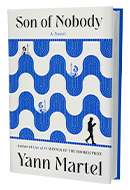
 Cate Blanchett has been cast to play Galadriel in Peter Jackson's film version of J.R.R. Tolkien's The Hobbit.
Cate Blanchett has been cast to play Galadriel in Peter Jackson's film version of J.R.R. Tolkien's The Hobbit.  Freedom by Jonathan Franzen (Farrar, Straus & Giroux). While it's risky
to predict how the winds of literary fashion may blow someday, Franzen's novel
has all the earmarks of a work of enduring merit and significance. Its deep,
compelling portrayal of our uneasy times is matched by the acuity of Franzen's
insight into the souls of his troubled creations.
Freedom by Jonathan Franzen (Farrar, Straus & Giroux). While it's risky
to predict how the winds of literary fashion may blow someday, Franzen's novel
has all the earmarks of a work of enduring merit and significance. Its deep,
compelling portrayal of our uneasy times is matched by the acuity of Franzen's
insight into the souls of his troubled creations. Vile Bodies by Evelyn Waugh (1930; reprinted by
Back Bay Books). A romp through a fantastical 1920s London filled with
strivers, dimwits and vampy flappers that is guaranteed to make a dreary day
seem sunny and change your mood from dull to effervescent.
Vile Bodies by Evelyn Waugh (1930; reprinted by
Back Bay Books). A romp through a fantastical 1920s London filled with
strivers, dimwits and vampy flappers that is guaranteed to make a dreary day
seem sunny and change your mood from dull to effervescent.  A Little Bit Wild by Victoria Dahl (Zebra). Hands down the best
historical romance I read this year. A precocious young heroine whose
blossoming appetites have already gotten her into trouble, and the rough but
sincere bastard son of a duke who volunteers to pretend to be engaged to her,
served up with a delightfully saucy sense of humor.
A Little Bit Wild by Victoria Dahl (Zebra). Hands down the best
historical romance I read this year. A precocious young heroine whose
blossoming appetites have already gotten her into trouble, and the rough but
sincere bastard son of a duke who volunteers to pretend to be engaged to her,
served up with a delightfully saucy sense of humor.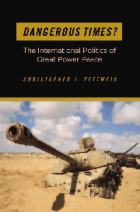 News reports confront us on a daily basis about deadly conflicts in Afghanistan, Iraq, Korea and elsewhere. Anxiety is widespread that any of these hotspots could spark a major war. Is that anxiety truly justified, Christopher Fettweis asks in his provocative analysis of current thinking (and heated debate) in university political science departments.
News reports confront us on a daily basis about deadly conflicts in Afghanistan, Iraq, Korea and elsewhere. Anxiety is widespread that any of these hotspots could spark a major war. Is that anxiety truly justified, Christopher Fettweis asks in his provocative analysis of current thinking (and heated debate) in university political science departments.